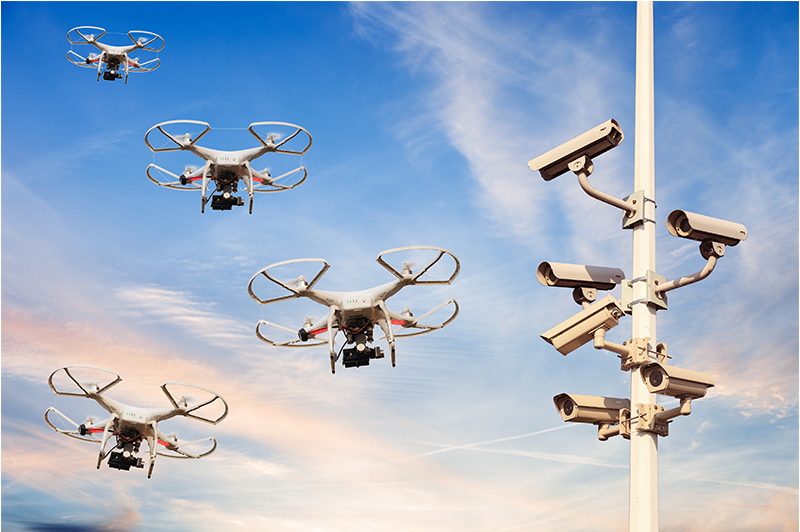The The ubiquitous surveillance cameras on the city streets always pay attention to everyone in the shooting range. But people will not know that in the open field, without your permission, UAVs are hovering in the air for camera tracking.
The court of appeal for the Fourth Circuit ruled last week that Baltimore violated the fourth amendment by using an air surveillance system to track the movement of the entire city.
In this case, the leaders had a beautiful fight. The Baltimore Police Department has challenged the Baltimore Police Department’s use of the air surveillance program, which captured 90% percent of the city’s estimated 12-hour coverage every day during a six-month trial period. Members of the eff, including the Brennan Justice Center, the Electronic Privacy Information Center, freedomworks, the National Association of criminal defense attorneys and the Rutherford Institute, submitted a friendly briefing, arguing that the previous two court decisions supporting the constitutionality of the plan misused the precedent of the Supreme Court and failed to recognize that it was the same as the Baltimore plan, The disproportionate impact of surveillance on communities of color.
In its ruling, the fourth circuit court held that the use and analysis of its air research data by the UK Department of defense was in violation of the Fourth Amendment’s unlicensed search. Relying on the Supreme Court to sue in the United States. Jones and the United States v. Carpenter, fourth circuit, held that carpenter ruled that cell location information was protected by the fourth amendment and therefore could only be obtained under a search warrant that was “fully” applicable to the case. The fourth circuit explained that the district court misunderstood the scope of the air program. The district court held that the plan was only a short-term follow-up. However, the fourth circuit clarified that, like carpenter’s cell location tracking, the detailed data collection and 45 day retention period of the air program enabled BPD to record operations in a “detailed, encyclopedic” manner, similar to “installing ankle monitors for everyone in the city.”
The court further noted that over supervision and the resulting over regulation did not allow different communities to enjoy the same rights
This ability to infer that individuals move over time violates the reasonable expectations of Baltimore residents for privacy. In making this decision, the court stressed the need to consider not only the original data collected, but also “the circumstances that this data may reveal”. Contrary to BPD’s claim that air surveillance data is anonymous, the court noted that some studies have shown that because we all have unique habitual ways of moving, people can easily identify themselves through several points in their geographic history. In addition, the court noted that when these data were combined with various surveillance tools available in Baltimore, it became easier to infer personal identity.
The court also recognized the impact of excessive supervision on race and criminal justice. It points out that although large-scale surveillance touches everyone, “it has the heaviest hand in communities already disadvantaged by poverty, race, religion, race and immigration,” and that the impact of high-tech surveillance “is obvious in the lives of those who have the least right to object.” The court further noted that over monitoring and the resulting over regulation do not allow different communities to enjoy the same rights: while “in some communities, freedom from government intervention is taken for granted,” others “see the fourth amendment as a system of surveillance, social control and violence, rather than a constitutional boundary to protect them from unreasonable searches and seizures
Chief justice Gregory made an in-depth discussion on this issue. Opponents argue that restricting police power will lead to more violence. They also point out that Baltimore spends more per capita on police than any other similar city, and that the proportion of police spending in the black community is too high. However, policing such as the air program has not made the city safer; On the contrary, it ignores the fundamental problems that perpetuate urban violence, including long-standing apartheid, racial discrimination and extremely unequal distribution of resources.
We are pleased that the fourth circuit recognized the danger of allowing bpdb to use large-scale aerial surveillance to track almost all residents’ movements. Although Baltimore has stopped the program, it is far from the only city to adopt this invasive technology. This decision is an important victory in protecting our fourth amendment rights and a big step towards the complete end of the invasive air surveillance program.
Post time: Jul-13-2021


